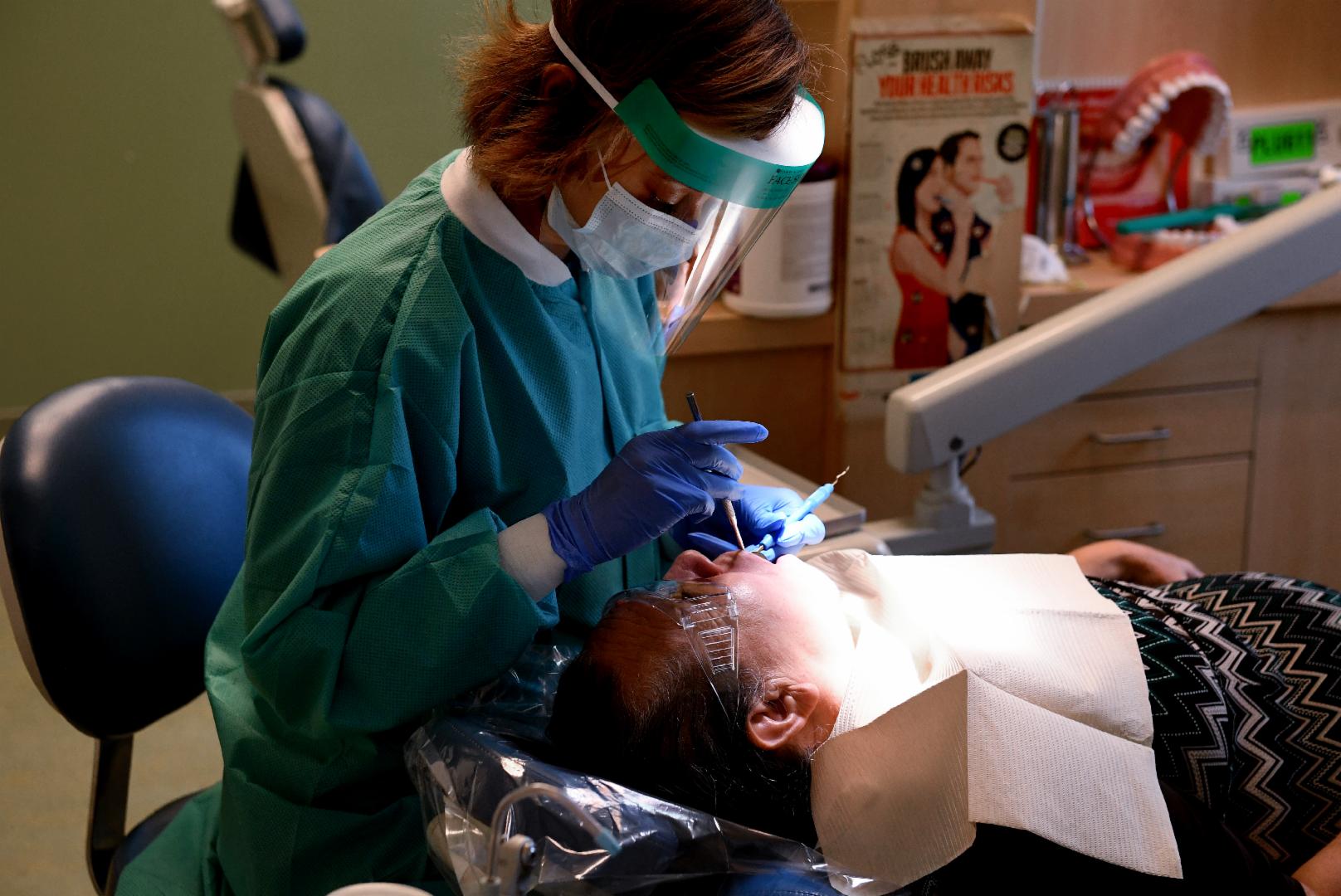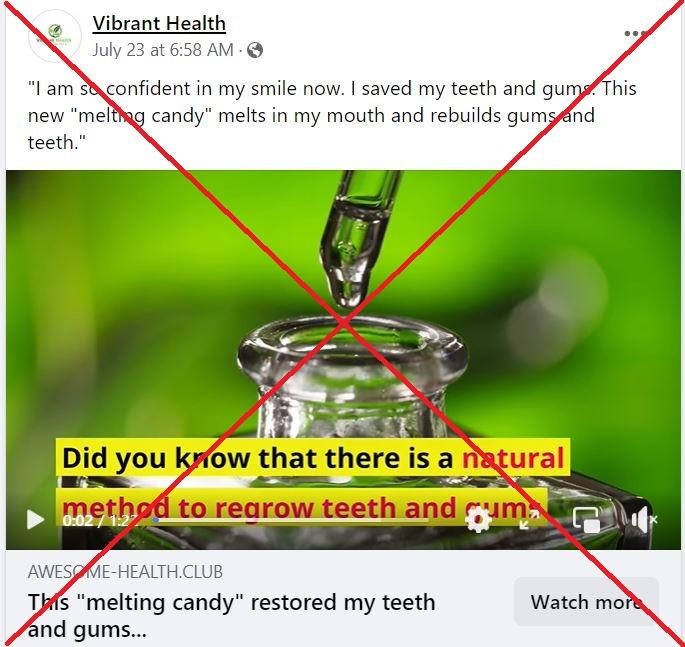
'Melting candy' dental treatment has no merit
"I am so confident in my smile now. I saved my teeth and gums. This new 'melting candy' melts in my mouth and rebuilds gums and teeth," says a Facebook post from July 23, 2022, which links to a video presentation with testimonials about a supplement named ProDentim.
The post describes a "natural method to regrow teeth and gums." Similar posts have been shared on Facebook and Instagram, with some accounts saying the product eliminated the need for dental implants or other procedures.

But there are no clinical grounds to back the claims, according to periodontal experts and the American Dental Association (ADA).
"Although there is some evidence that probiotics can interact with oral health, whether they can cure gum disease or reverse enamel loss or anything definitive like that has not been established," the ADA said in an emailed statement.
The ads -- some of which do not mention the product name -- make claims that are "not substantiated or supported by evidence," according to the ADA's Science and Research Institute.
The institute said that, since the product is a dietary supplement, it cannot be marketed using specific health claims. Supplements may only be said to "support" different functions in the body, the ADA noted.
Angelo Mariotti, chair of periodontology at the Ohio State University College of Dentistry, said there is no "confirmatory evidence" about the efficacy of the product promoted in the ads.
Mariotti said the video presentation from the company founder, an otolaryngologist, includes no reference to human double-blind clinical trials.
"He makes it sound as if you never have to see the dentist again," Mariotti told AFP. "This is of great concern. I don't think it's in the public's best interest to ignore your health by not seeing the dentist."
The ADA regularly reviews new techniques and therapies and provides a "seal of acceptance" to proven products. If the product were effective, Mariotti said, "the company could apply for a seal of acceptance" to market it more widely.
"I am not aware of any pharmacologic agent that is capable of regrowing gingival (gum) tissues," he added.
Mary Beth Aichelmann-Reidy, associate director of postgraduate periodontics at the University of Maryland School of Dentistry, also dismissed the claims.
"This product does not regrow teeth, gums or eliminate the need for dental treatment," Aichelmann-Reidy told AFP.
"When I view their advertising and provided references, there is no scientific support for their statements ... Pivotal to treatment success is mechanical removal of dental plaque. I cannot find legitimate support for this product and I searched the probiotic literature."
There is no known method for "regenerating" teeth, but some experiments using stem cells have shown promise, according to researchers.
AFP has previously fact-checked other unproven medical treatments here and here.
Copyright © AFP 2017-2026. Any commercial use of this content requires a subscription. Click here to find out more.
Is there content that you would like AFP to fact-check? Get in touch.
Contact us
